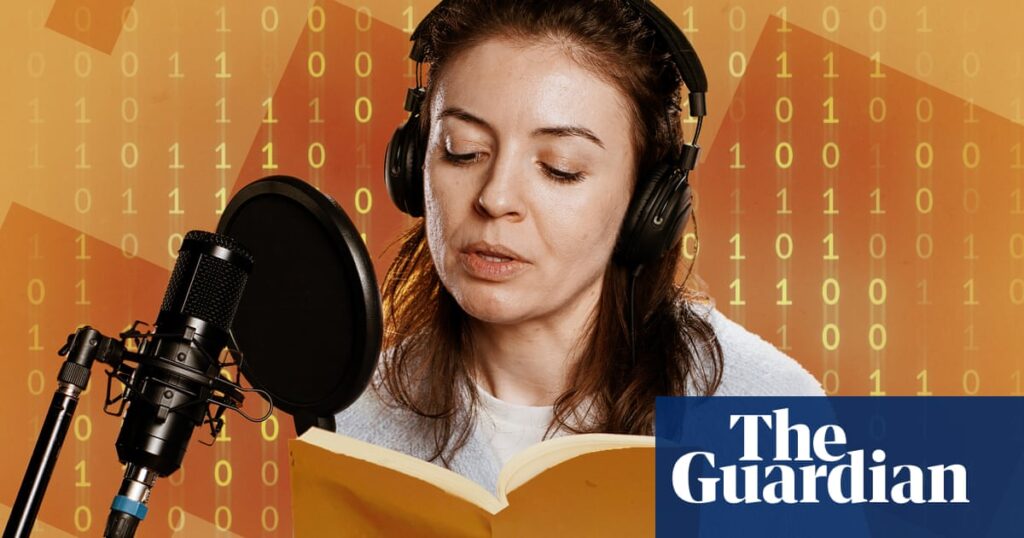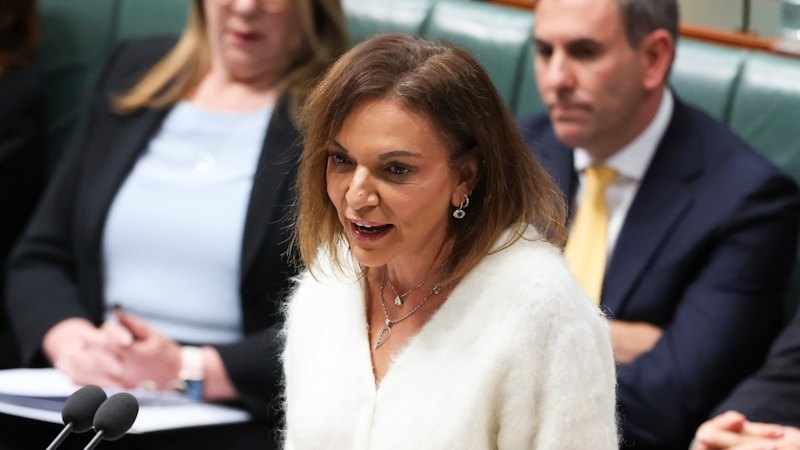
When we think about what makes an audiobook memorable, it’s often the most human moments: a catch in the throat when tears are near, or words spoken through a real smile. Annabelle Tudor, a Melbourne actor and audiobook narrator, captures this sentiment, emphasizing the instinctual storytelling that makes narration a primal and precious skill. “The voice betrays how we’re feeling really easily,” she says. However, this art form may be under threat.
In May, Audible, the Amazon-owned audiobook provider, announced it would allow authors and publishers to choose from over 100 voices created by artificial intelligence to narrate audiobooks in multiple languages. This announcement was met with both criticism and curiosity across the publishing industry. In Australia, where there are fewer audiobook companies and where emerging actors like Tudor rely on the work to supplement their incomes, there is growing concern about job losses, transparency, and quality.
While Tudor, who has narrated 48 books, isn’t convinced that AI can replicate her work just yet, she worries that poor quality may turn people away from the medium. “I’ve narrated really raunchy sex scenes – AI doesn’t know what an orgasm sounds like,” she says. “Birth scenes as well – I’d love to know how they plan on getting around that.”
The Audiobook Boom
According to a 2024 report by NielsenIQ Bookdata, more than half of Australian audiobook consumers increased their listening over the past five years. Internationally, there was a 13% increase in US audiobook sales between 2023 and 2024; in the UK, audiobook revenue reached a new high of £268m, a 31% increase on 2023, according to the Publishers Association.
As demand for audio content grows, companies are seeking faster and cheaper production methods. In January 2023, Apple launched a new catalogue of AI-narrated audiobooks. Later that year, Amazon announced that self-published, US-based authors with works on Kindle could turn their ebooks into audiobooks using AI “virtual voice” technology. Tens of thousands of these computer-generated audiobooks are now available through Audible.
In February, Spotify announced it would accept AI audiobooks to “lower the barrier to entry” for authors. Audible claims its aim is to complement, not replace, human narration, allowing more authors and titles to reach larger audiences. In the US, Audible is testing voice replicas for narrators to create voice dupes, empowering them to expand their production capabilities.
“In 2023 and 2024, Audible Studios hired more [human] narrators than ever before,” an Audible spokesperson told the Guardian. “We continue to hear from creators who want to make their work available in audio, reaching new audiences across languages.”
Volume or Quality?
Dorje Swallow’s career as a narrator took off after voicing novels by Australian bestselling crime author Chris Hammer. Swallow, who has narrated about 70 audiobooks, believes AI narration is a tool created by those who “don’t understand the value, technique, and skills” required to produce quality audiobooks.
“We’ve done the hard yards and then some to get where we are, and to think you can just press a button and you’re going to get something of similar, or good enough quality, is kind of laughable,” he says.
Simon Kennedy, president of the Australian Association of Voice Actors, highlights the ongoing battle over narrator compensation in Australia. For every finished hour of an audiobook, a narrator might spend double or triple that time recording, not including an initial read to understand the book and its characters.
“My personal opinion is that [introducing AI narrators] is going for volume over quality – and it’s looking to cheapen the process,” Kennedy says.
In response to the AI threat, Kennedy founded the Australian Association of Voice Actors in 2024. The organization warned a parliamentary committee that 5,000 Australian voice acting jobs were at risk. Kennedy was unsurprised by Audible’s announcement, calling it a “pretty dumb move.”
“An audiobook narrator has such a special and intimate relationship with the listener that to try and do anything that is less connective is a foolish move,” he says. As for the opportunity to clone their own voices, Kennedy believes voice actors should have the right to engage but shouldn’t expect the same pay rates, risking turning their unique timbre into a mass-produced robot voice.
Regulatory Concerns and Creative Integrity
Another major concern is Australia’s lack of AI regulation. While the EU has its AI Act, and China and Spain have labelling laws for AI-generated content, Australia is lagging behind.
“There are no laws to prevent data scraping or non-consenting cloning of voices, or of creating deepfakes of people,” Kennedy says. “There are also no labelling laws or laws to mandate watermarking of AI-generated content and its origins; no laws to mandate transparency of training data; and no laws to dictate the appropriate use of AI-generated deepfakes, voice clones or text.”
Hannah Kent, author of “Burial Rites” and “Devotion,” was shocked to discover her pirated work had been used to train Meta’s AI systems. While initially outraged by AI’s encroachment into creative spaces, she is curious about Audible’s AI announcement, particularly its plans for AI translation.
“I think it’s fairly obvious that the main reason to use AI would be for costs, and I think that’s going to cheapen things in a literal sense and cheapen things in a creative sense – in that sense of us honouring the storytelling, artistic and creative impulse,” Kent says.
Tudor and Swallow believe big companies will struggle to replace human narration completely, partly because many Australian authors will oppose it. However, whether listeners can discern the difference remains to be seen.
“The foot is on the pedal to drive straight into dystopia,” Tudor says. “Can we just listen to people instead of robots?”







